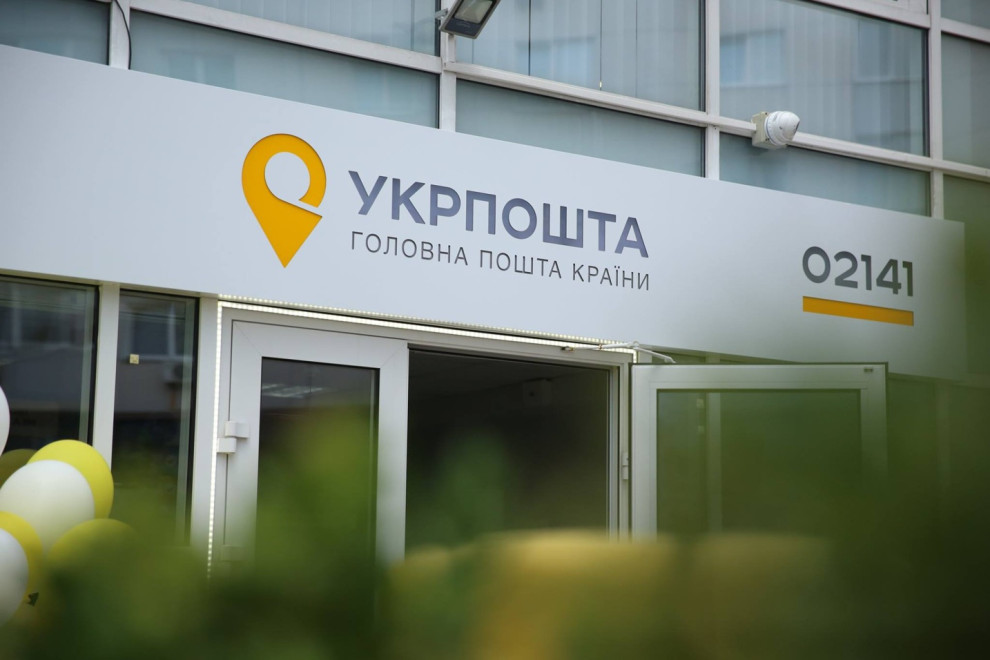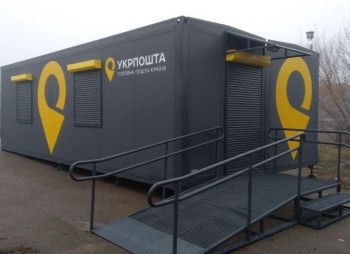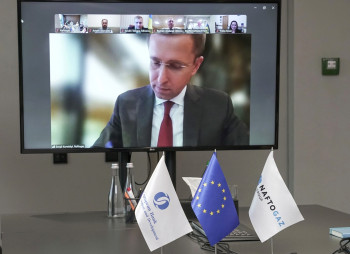The European Bank for Reconstruction and Development has approved a grant of €4.5 million to maintain Ukraine’s internet access via its national postal service, Ukrposhta, in an imaginative solution that aims to keep people even in remote rural areas of Ukraine connected despite Russia’s prolonged attacks on the country’s electricity infrastructure.
A grant of €4.5 million, to be drawn from the EBRD’s Shareholder Special Fund, will support Ukrposhta in buying satellite internet devices and supporting power generators to provide reliable internet connection and mobile charging points across the company’s postal network, the largest in the country.
Because this system is independent of Ukraine’s national power grid, which has come under sustained attack from Russia this autumn, bringing widespread power cuts, it means that Ukraine’s post offices - even in remote and rural areas - can serve as points of resilience for local populations.
The grant proceeds will cover 1700 post offices in more than 450 cities and towns. Ukrposhta will top up the EBRD’s €4.5 million with an additional €1.5 million of its own funds for this project, to buy more equipment, including heating stoves, wifi routers and lighting equipment.
The EBRD grant complements an earlier EBRD-funded project signed in November 2020 under which Ukrposhta was using a €63 million EBRD loan to modernise its logistics infrastructure. The original loan was to provide, firstly, up to 1,900 “mobile post office” vans for use in rural areas and, secondly, building modern automated sorting hubs and depots nationwide (this €30 million tranche was to be co-financed by the European Investment Bank with a further €30 million loan).
By September this year, more than 1,600 of the vans had come into service. They have replaced many bricks-and-mortar post office branches in rural areas and have played a vital role in delivering parcels, pensions and basic necessities to local populations across the country, including in recently liberated areas in the east and south of Ukraine.
The EBRD has provided more than €1 billion of finance since Russian troops entered Ukraine in February. Working with donors and guarantors, its focus is on supporting the real economy, looking in particular at trade, energy security, critical infrastructure, food security, and support for the private sector. It has provided substantial emergency liquidity finance in 2022 and is increasingly working on supporting emergency repairs to critical infrastructure.
In October, during a visit to Kyiv to meet Ukraine’s Volodymyr Zelenskyy, EBRD President Odile Renaud-Basso told the Ukrainian President of the Bank’s determination to support Ukraine while it defends itself against Russia’s aggression and pledged that the EBRD will commit up to €3 billion over 2022-2023 to help Ukraine’s businesses and economy keep functioning.
Ukraine is one of the Bank’s largest recipients of investment. From the beginning of the war in February, the Bank has moved swiftly, from condemning the Russian attack on Ukraine, facilitated by Belarus, to preparing an immediate financial response. Its assistance aims to ensure the resilience of Ukraine and the countries that are welcoming refugees, combined with work on the country’s reconstruction when conditions are right.






